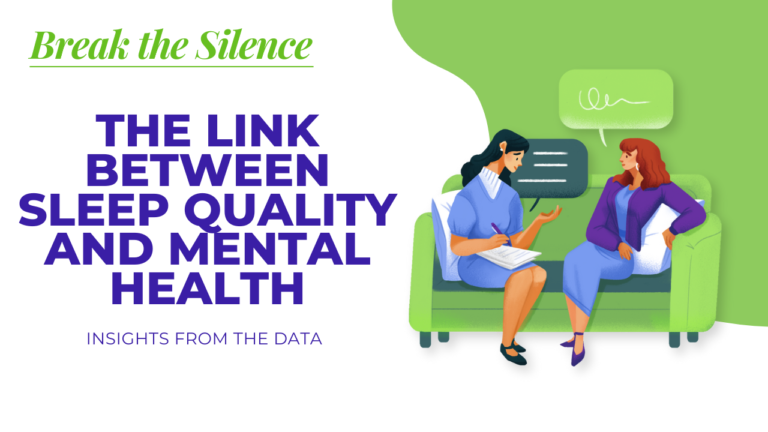
Today’s generation faces a unique set of health challenges. From the pressures of modern living to the rise of digital technology, maintaining good health can be more challenging than ever before. In this blog post, we’ll explore the top health issues affecting today’s generation and provide practical tips on how to address them.
1. Mental Health Struggles
Modern life is fast-paced, and this constant rush can take a toll on mental well-being. Many people, especially young adults, experience high levels of stress, anxiety, and depression. Social media can also contribute to feelings of inadequacy and loneliness, despite its ability to keep people connected.
How to Overcome It:
- Take Breaks from Social Media: Limit time spent on social media platforms, and focus on real-life connections.
- Practice Mindfulness: Mindfulness techniques like meditation, deep breathing exercises, and yoga can help reduce stress.
- Seek Support: Don’t be afraid to talk to a mental health professional or reach out to friends and family for support. Remember, asking for help is a sign of strength, not weakness.
- Exercise Regularly: Physical activity can have a positive impact on mental health by releasing endorphins, the body’s natural mood boosters.
2. Sedentary Lifestyle
The rise of desk jobs, screen time, and convenience-based living has led to a more sedentary lifestyle. Sitting for long hours, whether at work or home, can increase the risk of obesity, heart disease, and other health problems.
How to Overcome It:
- Move More: Make it a point to stand up and stretch every 30 minutes if you have a desk job. Walk around during phone calls, take the stairs, or go for a short walk during breaks.
- Incorporate Exercise: Aim for at least 30 minutes of moderate exercise, such as brisk walking, cycling, or swimming, five times a week.
- Use Technology Wisely: Fitness apps and smartwatches can be great tools to remind you to move, track your steps, and set fitness goals.
3. Poor Nutrition and Unhealthy Eating Habits
Today’s generation has easier access to fast food, sugary snacks, and processed foods, which are often high in unhealthy fats, sugar, and salt. These eating habits can lead to weight gain, diabetes, and other chronic diseases.
How to Overcome It:
- Eat More Whole Foods: Focus on a diet rich in fruits, vegetables, whole grains, lean proteins, and healthy fats.
- Limit Processed Foods: Try to reduce consumption of processed foods and sugary drinks. Instead, opt for homemade meals and snacks.
- Stay Hydrated: Drink plenty of water throughout the day. Sometimes, hunger is actually thirst in disguise.
- Plan Meals: Prepare meals in advance to avoid the temptation of fast food. Healthy meal prep can help you make better choices throughout the week.
4. Lack of Quality Sleep
Busy schedules, late-night screen time, and stress often lead to poor sleep habits. A lack of quality sleep can affect mood, cognitive function, and physical health, contributing to problems like obesity and heart disease.
How to Overcome It:
- Create a Sleep Routine: Go to bed and wake up at the same time every day, even on weekends. This helps regulate your body’s internal clock.
- Limit Screen Time Before Bed: Avoid screens (phones, tablets, and computers) for at least an hour before bed, as the blue light can interfere with sleep.
- Create a Comfortable Sleep Environment: Make sure your bedroom is cool, dark, and quiet. Consider using blackout curtains, white noise machines, or comfortable bedding.
- Practice Relaxation Techniques: Reading, listening to calming music, or practicing deep breathing exercises can help you unwind before bedtime.
5. Overuse of Technology
Technology has brought numerous benefits, but over-reliance on smartphones, computers, and gaming consoles can lead to eye strain, poor posture, and even addiction. Digital distractions can also impact mental health and productivity.
How to Overcome It:
- Set Screen Time Limits: Use apps that track screen time and set limits for non-essential use.
- Take Breaks: Follow the 20-20-20 rule: Every 20 minutes, look at something 20 feet away for at least 20 seconds to reduce eye strain.
- Engage in Offline Activities: Dedicate time each day to activities that don’t involve screens, such as reading, cooking, hiking, or spending time with friends.
- Practice Digital Detox: Take a break from technology once in a while to refresh your mind. Consider a screen-free day on weekends.
6. Substance Abuse and Addictions
The pressures of modern life, social influences, and mental health struggles can sometimes lead to substance abuse, whether it’s alcohol, drugs, or prescription medication. Vaping, smoking, and excessive drinking are also common concerns.
How to Overcome It:
- Recognize the Signs: If you or someone you know struggles with substance use, it’s important to recognize the signs early on.
- Seek Professional Help: Treatment and counseling are essential steps. Many health professionals specialize in addiction recovery.
- Develop Healthy Coping Mechanisms: Instead of turning to substances, find healthy ways to cope with stress, like exercise, hobbies, or talking to someone you trust.
- Support Networks: Join support groups that can provide guidance, accountability, and a sense of community.
7. Environmental Concerns and Air Quality
Pollution and environmental changes have made air quality a growing concern, especially in urban areas. Poor air quality can lead to respiratory problems, allergies, and other health issues.
How to Overcome It:
- Stay Informed: Keep track of air quality levels in your area. Many weather apps provide this information daily.
- Limit Outdoor Activities: On days with poor air quality, try to limit outdoor activities, especially strenuous ones.
- Use Air Purifiers: Consider using air purifiers at home to reduce indoor pollutants.
- Support Environmental Efforts: Participate in community clean-ups, plant trees, and support eco-friendly practices to contribute to a healthier environment.
8. Chronic Health Conditions
There’s been an increase in chronic conditions like obesity, diabetes, and heart disease due to lifestyle factors. Sedentary habits, poor diets, and stress play a significant role in the rise of these health issues.
How to Overcome It:
- Regular Check-Ups: Schedule annual health check-ups to catch any potential problems early.
- Adopt a Balanced Lifestyle: Combine a healthy diet with regular exercise, stress management, and adequate sleep.
- Educate Yourself: Understand your family’s health history and learn about the risks associated with certain conditions to take preventive measures.
- Stay Active: Even small changes, like taking daily walks or doing home workouts, can make a difference over time.
Conclusion
The health challenges faced by today’s generation are real, but they are not insurmountable. By making mindful choices, creating healthy habits, and seeking support when needed, it’s possible to lead a healthier and more fulfilling life. Small changes can lead to significant improvements, so start today by focusing on one or two areas where you can make a positive shift. Your future self will thank you!

















